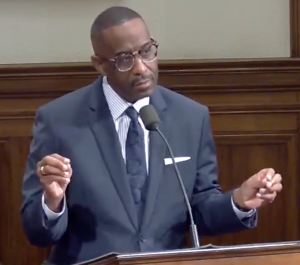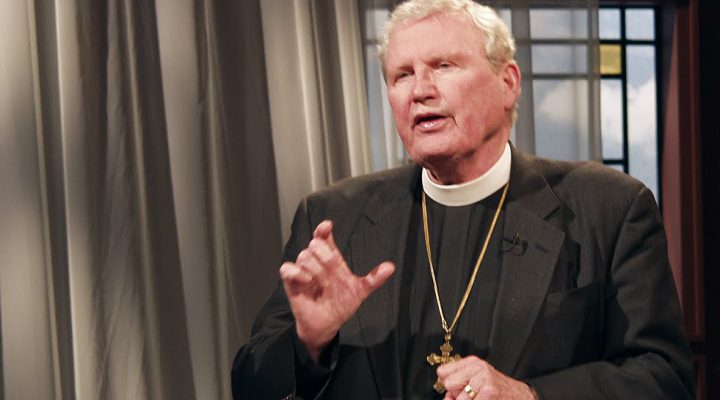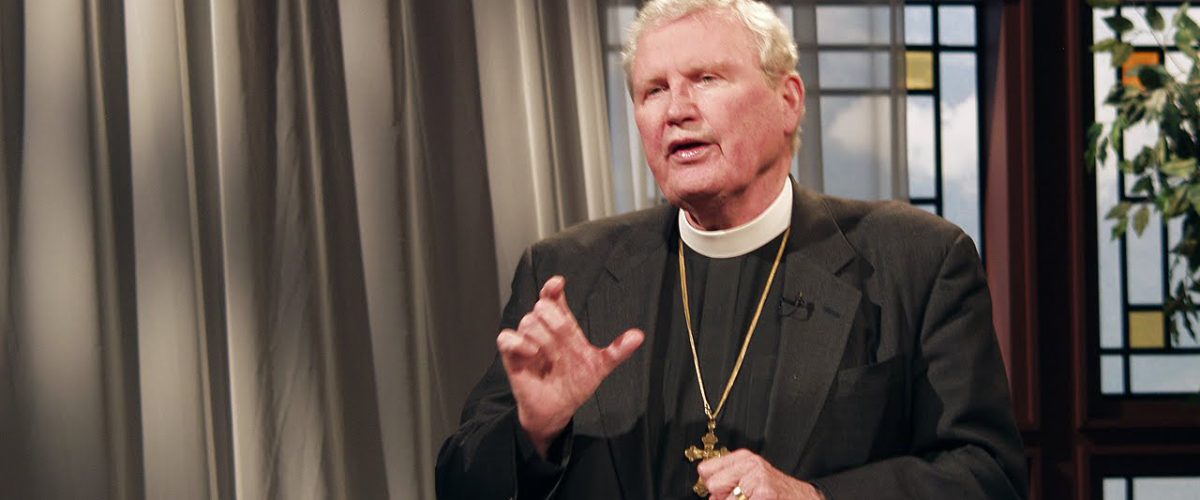Americans cannot simply continue to enjoy the Civil Rights achievements of the likes of Martin Luther King Jr., Rosa Parks, Malcolm X, Fannie Lou Hamer and John Lewis without taking up the cause of racial justice themselves, Simmons College of Kentucky President Kevin Cosby said Sept. 16 during the William M. Johnson Lecture Series at Crescent Hill Baptist Church in Louisville.
“We have inherited the blessings of people who have sacrificed, but we have lost to a great degree that same spirit that produced the blessings we enjoy today,” said Cosby, who also serves as pastor of St. Stephen Baptist Church in Louisville.

Kevin Cosby
But another of the greats whose accomplishments must be paid forward is John R. Claypool, the preacher and theologian whose life and ministry was the focus of the Sept. 16-18 symposium at Crescent Hill Baptist.
“Jesus said, ‘And you will know the truth and the truth will set you free.’ But Jesus never said that the truth would make you comfortable. And unfortunately, today we want a comfortable truth, a convenient truth. And John Claypool during his preaching ministry was not looking for a comfortable, convenient truth,” Cosby explained.
Known for his “confessional” style of preaching, Claypool served four high-profile Baptist churches — including Crescent Hill from 1960 to 1971 — before becoming an Episcopal priest in 1986. The author of 11 books, he earned an undergraduate degree at Baylor University and a doctorate from Southern Baptist Theological Seminary in Kentucky. He later taught preaching at Mercer University’s McAfee School of Theology before his death in 2005.
“Anytime you hear John Claypool preach, if you are a preacher, you wonder if you have been called to preach.”
“What a preacher,” Cosby said. “Anytime you hear John Claypool preach, if you are a preacher, you wonder if you have been called to preach. I mean just outstanding. And he was a courageous preacher. He was a bold preacher. He was, as Jeremiah Wright would say, not pathetic, but prophetic. He spoke truth to power. He dared to look at life through the lens of the marginalized, the dispossessed, the disenfranchised.”
Sadly, the work of Claypool and those with whom he struggled is not over, Cosby said. “I know we think we’re living in a post-racial and colorblind America. But we’re not colorblind. We’re history blind. And because we’re history blind, we’re justice blind.”
Cosby turned to First Corinthians 15:29, where he interpreted the phrase “baptized for the dead” to mean that baptism obligates Christians to take up the causes of their predecessors’ causes, when just. This would include King, Hamer and others who struggled for freedom.
“We were not baptized just to sit,” he said. “We were ‘baptized for the dead’ when it comes to justice. … Who will be ‘baptized for the dead’ to make sure that all people have an opportunity to be educated?”
“God did not save us to sit. God saved us to serve.”
Cosby applied the concept to the future of the church. “It’s one thing to talk about Claypool and the icons of our church, but today who will be baptized for that choir member who just passed? Who would be baptized for those who work with children and work in the youth ministry? God did not save us to sit. God saved us to serve.”
Such service often is not the reality for a generation characterized by the words “security” and “success,” compared to the Claypool generation known for “struggle” and “sacrifice,” Cosby said. “This is the … generation of hot-tub religion, of easy believe-ism, of cheap grace and comfortable pews. We enjoy the benefits for what others have died for, labored for, marched for, went to jail for, got put out for.”
Cosby said he gets depressed thinking about it because growing up he witnessed desegregation, the Voting Rights Act and other civil rights milestones. He came to believe such advances were permanent.
“But the critical race theorists tell us no, you have a high-point end of racial justice and then it will revert back to white domination, white monopolization. It’s baked into the cake.”
The response must be “to be baptized,” to pick up the standards previously carried by King Claypool and others, Cosby said. And that goes for clergy, too.
“You have to decide whether or not you want to be a modern, urban, successful pastor or whether you want to be a disciple.”
“I guess you have to decide whether or not you want to be a modern, urban, successful pastor or whether you want to be a disciple. John Claypool was not concerned about being a modern, urban, successful pastor. John Claypool wanted to be a disciple, and being a disciple would get you in trouble. But that’s the kind of prophet John Claypool was.”
Cosby urged those attending the lectures to do more than celebrate Claypool’s memory and achievements.
“Our purpose is not simply to just venerate him, but our purpose is to continue the great work of John Claypool in our generation,” he declared. “Our assignment during this time together is to be inspired to learn from John Claypool and then leave here and say, ‘You know what, John? I’ll be better.’”
Related articles:
Remembering Professor Claypool | Opinion by Chandler Vinson
September symposium will celebrate life and legacy of John Claypool
Influential minister John Claypool dies of cancer-related causes


